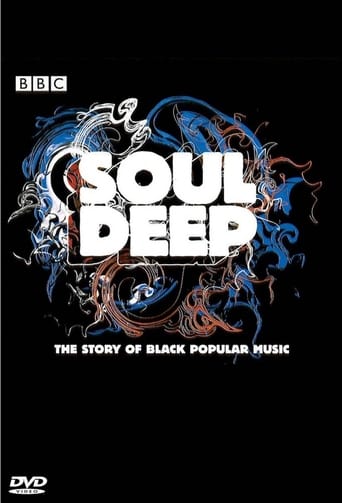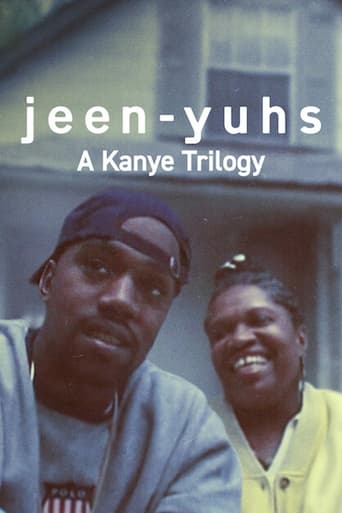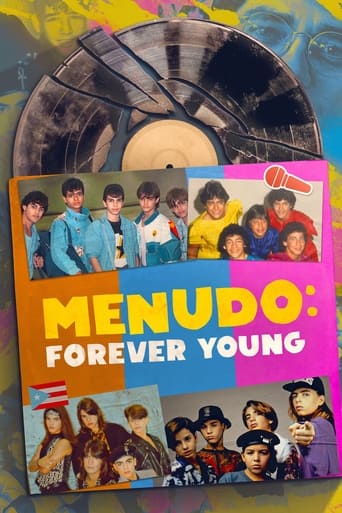Soul Deep: The Story of Black Popular Music Season 1

Soul music has conquered the world in the last 50 years - growing from the raw, electric rhythms of the black underclass, it is now a billion dollar industry with R&B and hip hop dominating the world's charts. It's been the soundtrack to some of the most extraordinary social, political and cultural shifts. Together with the civil rights movement, it has challenged white hegemony, helped break down segregation and encouraged the fight for racial equality. This new six-part series, made by the BBC team who produced the critically-acclaimed Lost Highway, Walk On By and Dancing In The Street series, charts the evolution of soul music - with a fascinating combination of rare archive footage and over 100 contemporary interviews. The movers and shakers from the world of soul – such as James Brown, Mary J Blige, Beyoncé and Martha Reeves, - plus some often overlooked talent, track the music that shaped our lives.
Watch NowWith 30 Day Free Trial!
Soul Deep: The Story of Black Popular Music
2005
6 Part Mini-Series
Watch Trailer
With 30 Day Free Trial!
Soul Deep: The Story of Black Popular Music Season 1 Full Episode Guide
Today, contemporary R&B is the music that the world spins to. R&B is one of the biggest selling music genres, worldwide its performers are among the most conspicuous celebrities on the planet with mighty corporations queuing up to recruit them to promote their products. This episode investigates how R&B arrived at its lofty heights. An extraordinary story unfolds, tracing the diamond-dripping, premiere-attending world of today's R&B stars, right back to the crack streets of Harlem in the mid 80s. It's also the story of how Mary J Blige's troubled journey revolutionised the sound of modern pop and in doing so took black music from the ghetto to fabulous.
Funk was a brand new Soul bag. It was the soundtrack to riots and revolution, the heady Black Power era in the second half of the 60s and early 70s. Its tough urban rhythms brilliantly evoked a time of Black cultural pride and political upheaval. Ain't It Funky traces Funk's roots from the raw blueprint of James Brown's Papa's Got A Brand New Bag to the cartoon, psychedelic Funk of George Clinton and his Parliament/Funkadelic thang of the mid-70s. Interviewees include: James Brown, George Clinton, Otis Williams, Pee Wee Ellis, Fred Wesley and David Ritz.
In the summer of 1967, Otis Redding performed in front of a 200,000 capacity crowd at the Monterey Pop Festival, the biggest audience of his career. Backed by the Stax Records house band, Booker T & The MGs, Otis gave the crowd a night of unadulterated down home Southern Soul.
This episode is about Motown's golden age from 1959 - 1967. It traces the Detroit label's extraordinary rise from cottage industry to mighty record giant before chronicling its fall from pop innocence. The Motown sound and its incredible flood of 1960s hits unquestionably changed the landscape of pop. With the Supremes, Martha Reeves & the Vandellas, the Temptations, the Four Tops, Smokey Robinson & The Miracles, the label rewrote the cultural rule book and created THE sound of young America.
Sam Cooke was gospel music's crown prince, the man who inspired a generation of singers when he took on the pop world and won. In the process he became soul music's first superstar. This episode follows Sam Cooke's career as he made the transition from gospel to pop, and profiles some of the artists who followed him: The Staple Singers, Ben E King, Solomon Burke and Johnnie Taylor.
The term rhythm and blues was coined by Billboard Magazine journalist Jerry Wexler after he was asked by his editor to find an alternative for the label 'race music'. In a previously unseen BBC interview with Ray Charles, he reveals how his innovations first brought soul to a wider audience. As the black sounds crossed the racial divide, rhythm and blues gave birth to rock 'n' roll – a far more sanitised version of the black sound which was seen to be "too uninhibited, too loose, and too sweaty." Black artists were squeezed out of the mainstream charts by white covers of their songs and Charles looked back to his roots for his inspiration and the creation of his own distinctive sound.
Free Trial Channels
Seasons




































